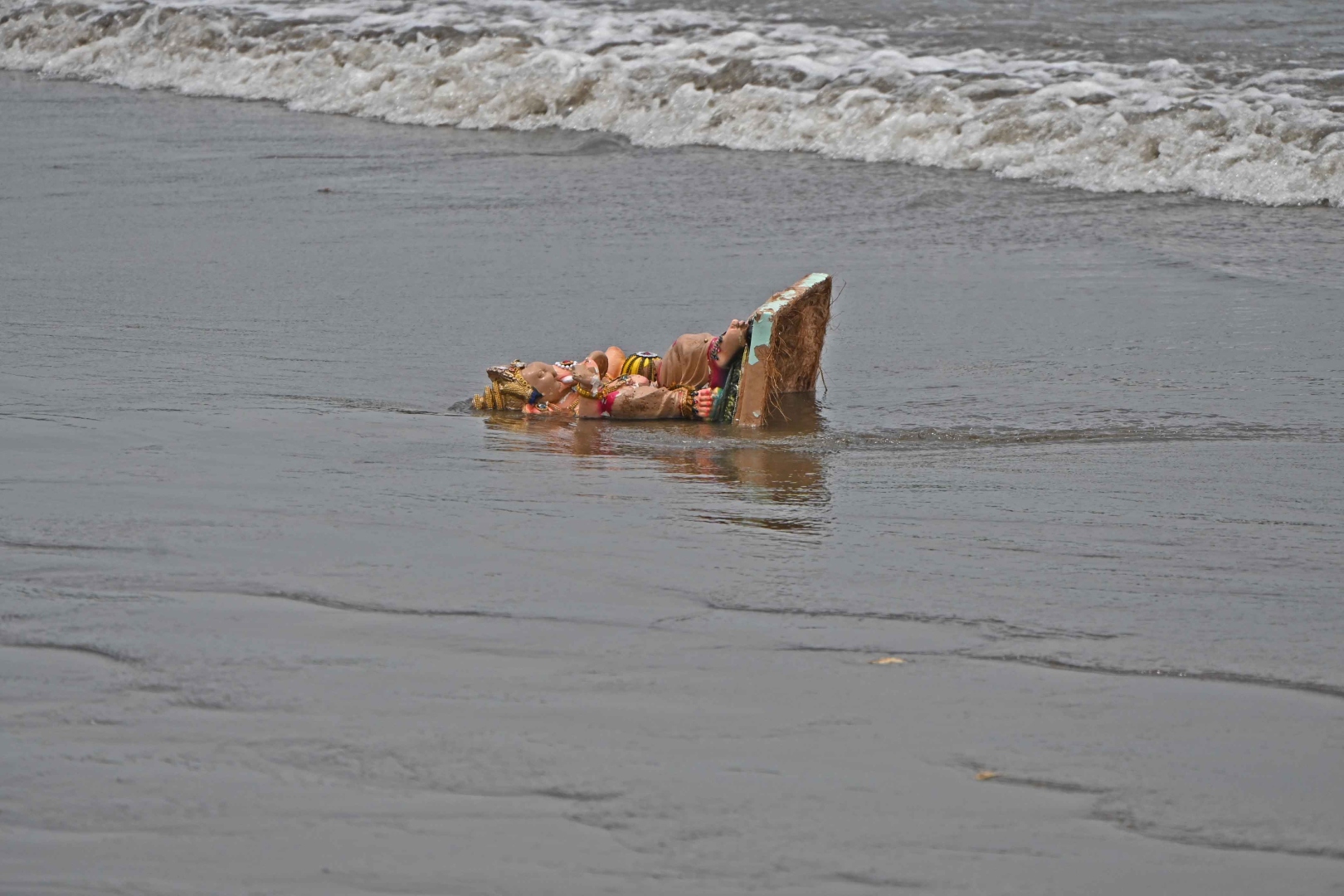
An idol of Lord Ganesh that washed ashore on Caranzalem beach on Monday.
Photo Credits: Narayan Pissurlenkar
MAPUSA
The washing ashore of numerous Ganesh idols, many broken and battered, after the recent one-and-a-half-day immersion festivities has sparked concerns over the effectiveness of the State’s ban on Plaster of Paris (PoP) idols.
The distressing scenes, observed along Goa’s beaches where idol immersions take place, highlight a critical lapse in preventing PoP idols from entering the State, despite government measures.
Goa State Pollution Control Board (GSPCB) Chairman Mahesh Patil acknowledged the issue, admitting that the proactive steps taken before the Ganesh Chaturthi festival were not enough to curb the sale and use of PoP idols.
“We will need to be more vigilant in the future,” Patil stated, while noting the difficulty of inspecting idols during immersion due to potential religious sensitivities.
Patil explained that while officials cannot examine the idols during immersion to avoid hurting religious sentiments, efforts will be made to intensify monitoring and inspections well before the festival.
“We need to check all selling points, especially in city areas, as this doesn’t happen as much in villages,” he said.
The sight of washed-up idols, many clearly made of PoP despite a government directive banning their use, has sparked a wave of concern.
Chief Minister Pramod Sawant had previously announced in the monsoon session of the Assembly that strict measures would be implemented to prevent PoP idols from entering Goa from neighboring states.
However, the surfacing of PoP idols suggests the measures fell short.
According to Patil, his team has been actively visiting immersion sites, including Miramar and Caranzalem beaches, to collect samples of the washed-up idols for analysis.
“If the calcium sulphate content is more than 10 percent, then it’s PoP,” Patil explained, highlighting that all PoP idols in Goa are imported from other states.
In the lead-up to the festival, the GSPCB had conducted inspections across the State, uncovering four units – three in North Goa and one in South Goa – illegally selling PoP idols.
“We wrote to the Collector to take action and seal these units,” Patil said, emphasising that future efforts must target traders and sellers of PoP idols.
The Board had checked 70 locations before the festival and identified the violators, but the re-emergence of PoP idols now suggests that stricter and earlier interventions are necessary.
“We will need to be more vigilant, and ensure that such idols do not enter Goa from outside in the future,” Patil reiterated.
As the State grapples with the aftermath of the festival, the disturbing images of idols washing ashore serve as a reminder of the environmental and cultural consequences of lax enforcement.
Authorities are now tasked with devising more stringent measures to ensure the PoP ban is adhered to and the sanctity of the festival – and the environment – is preserved.